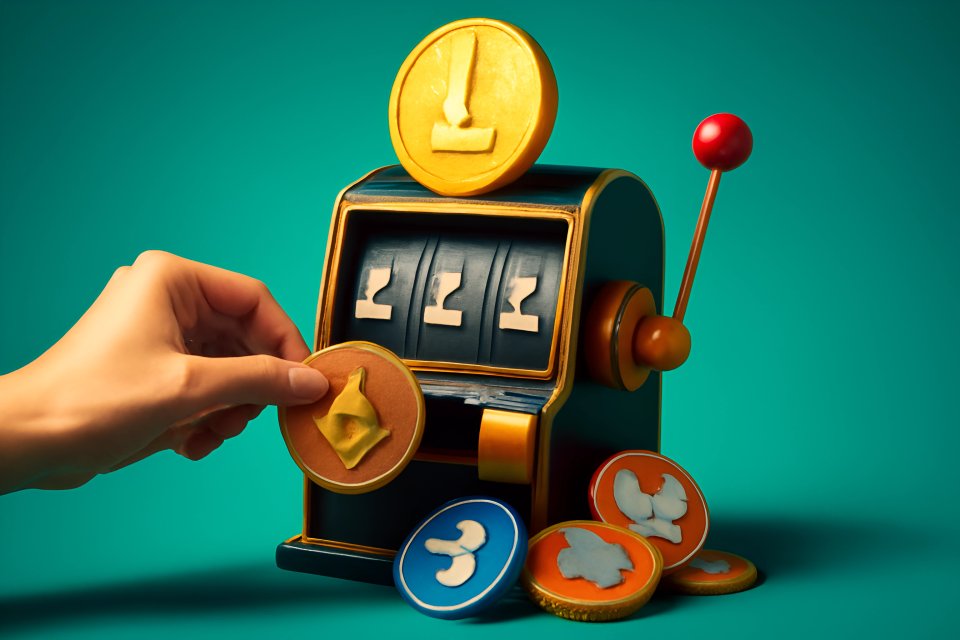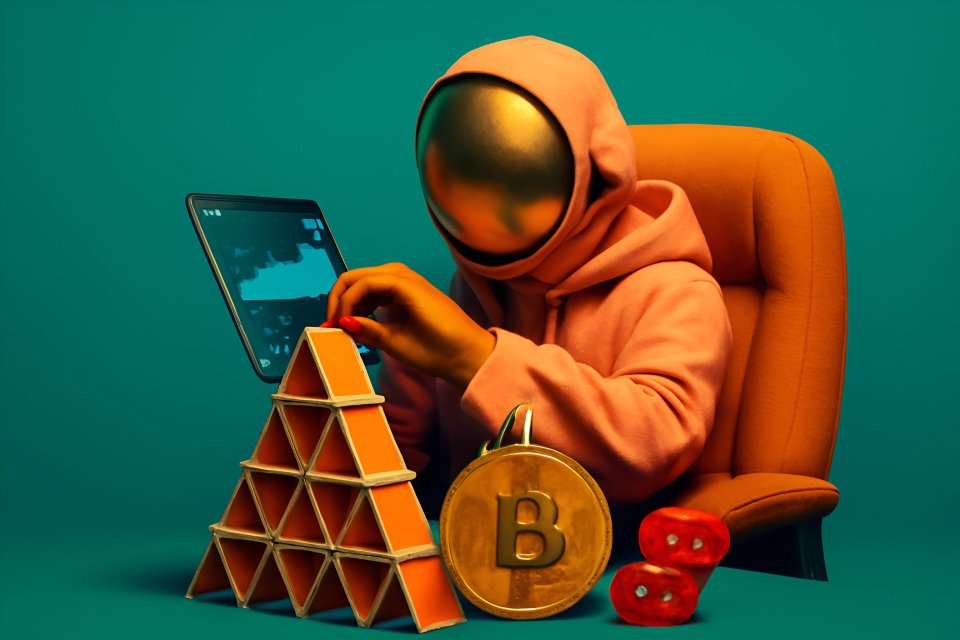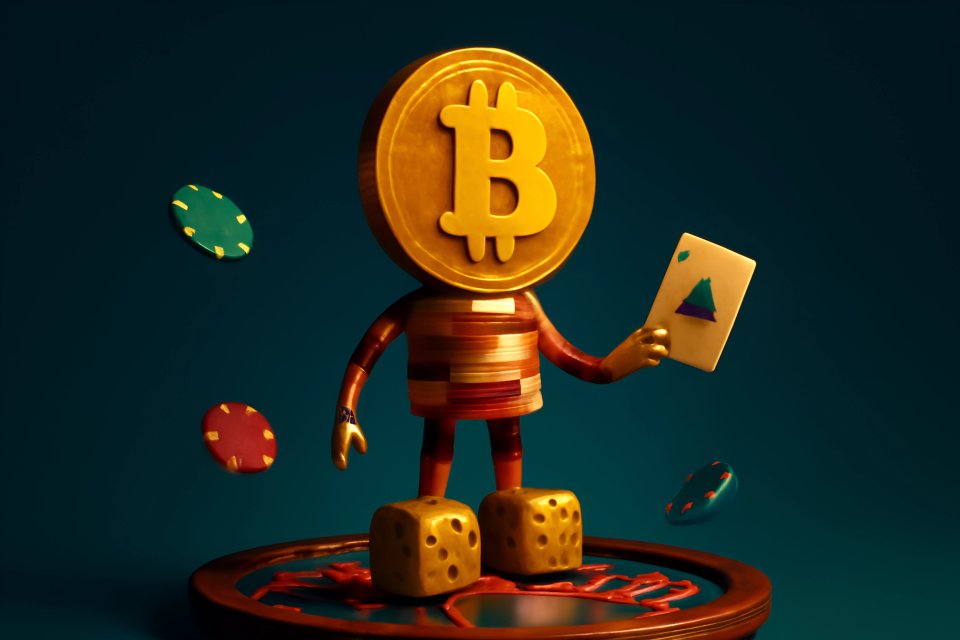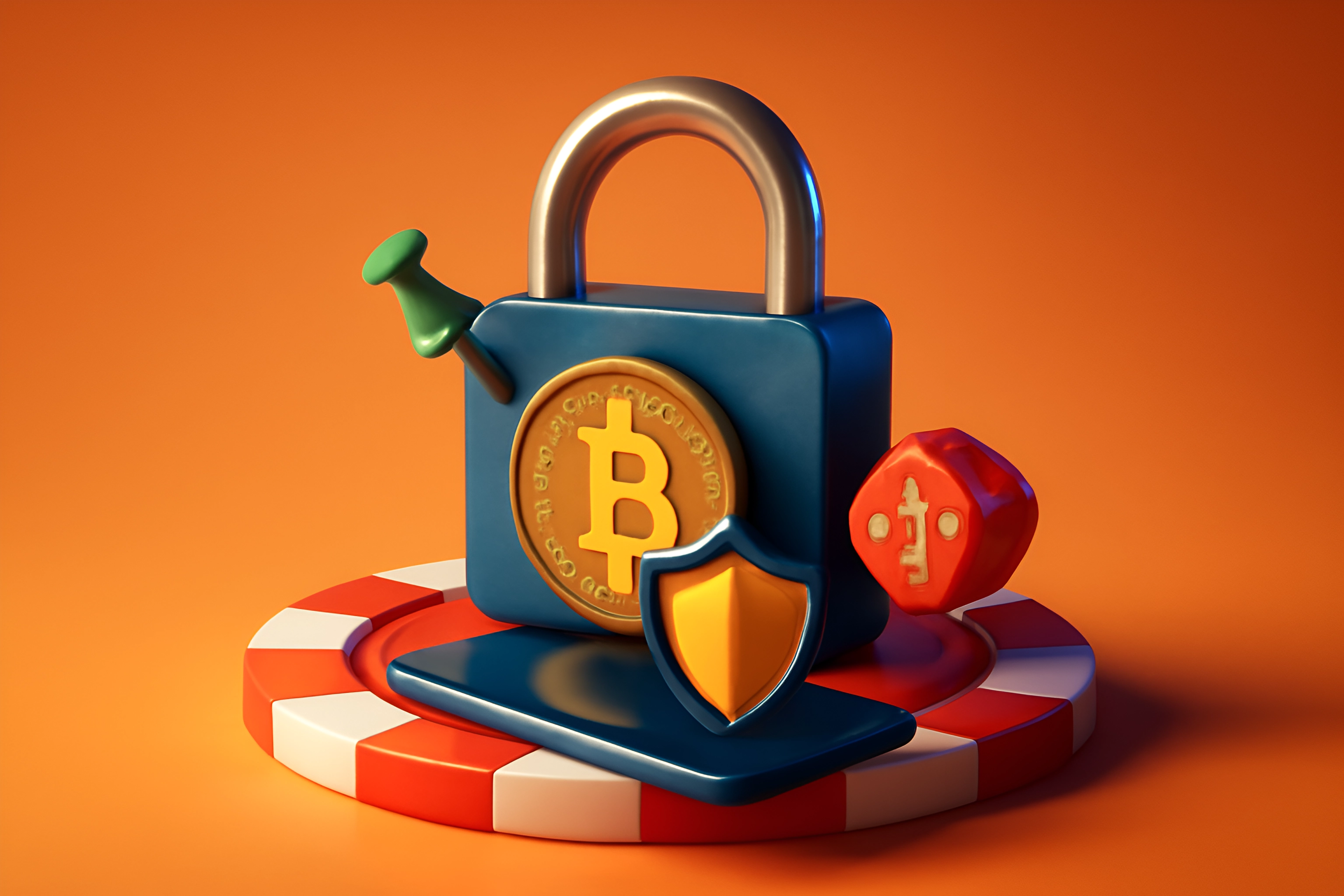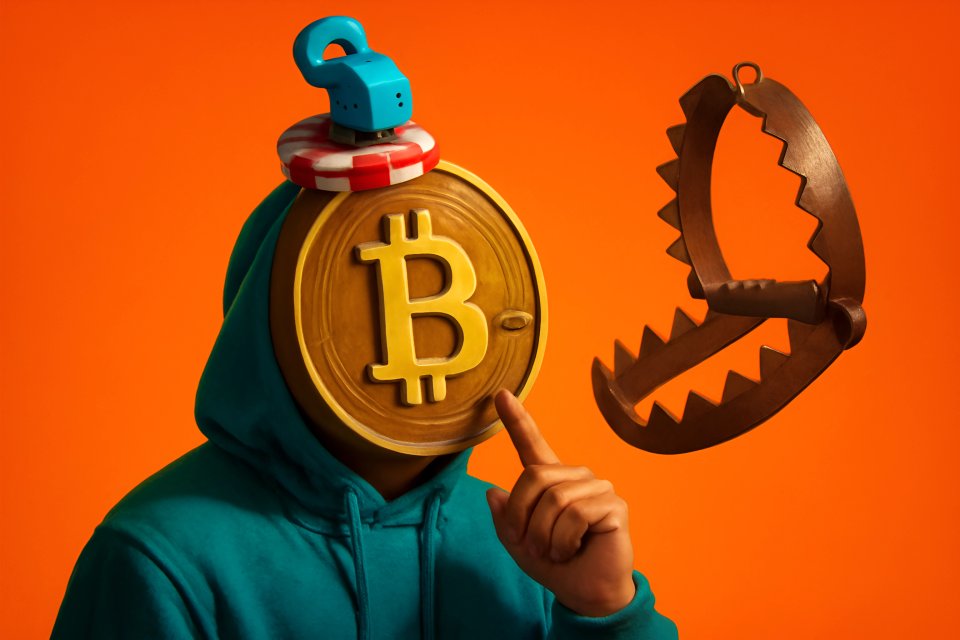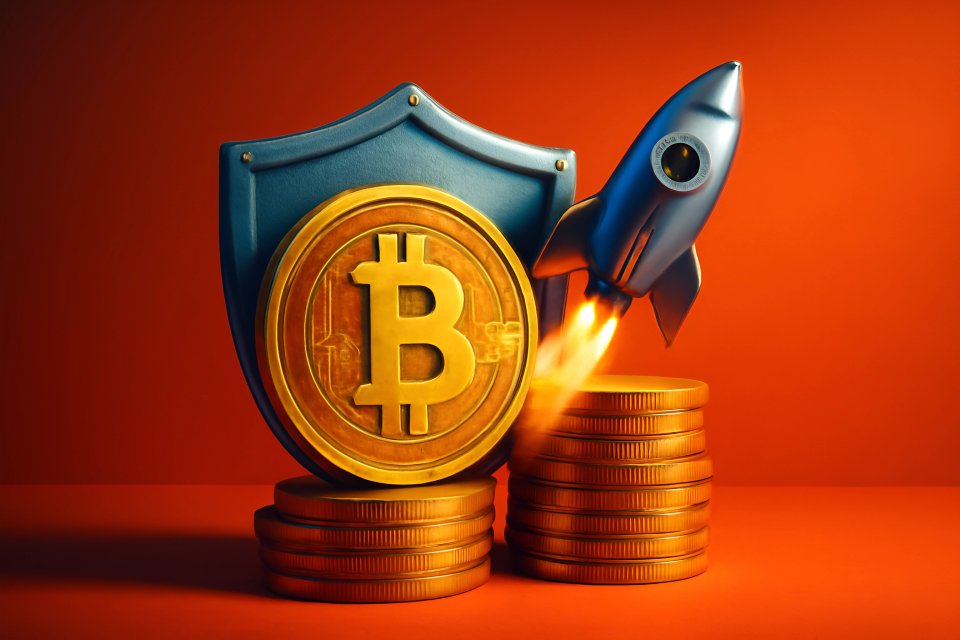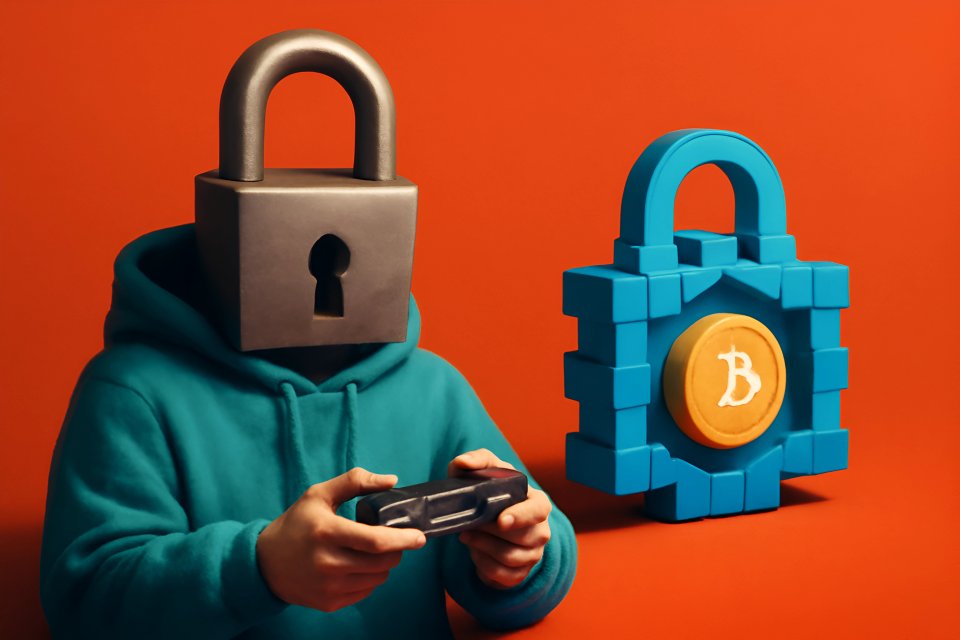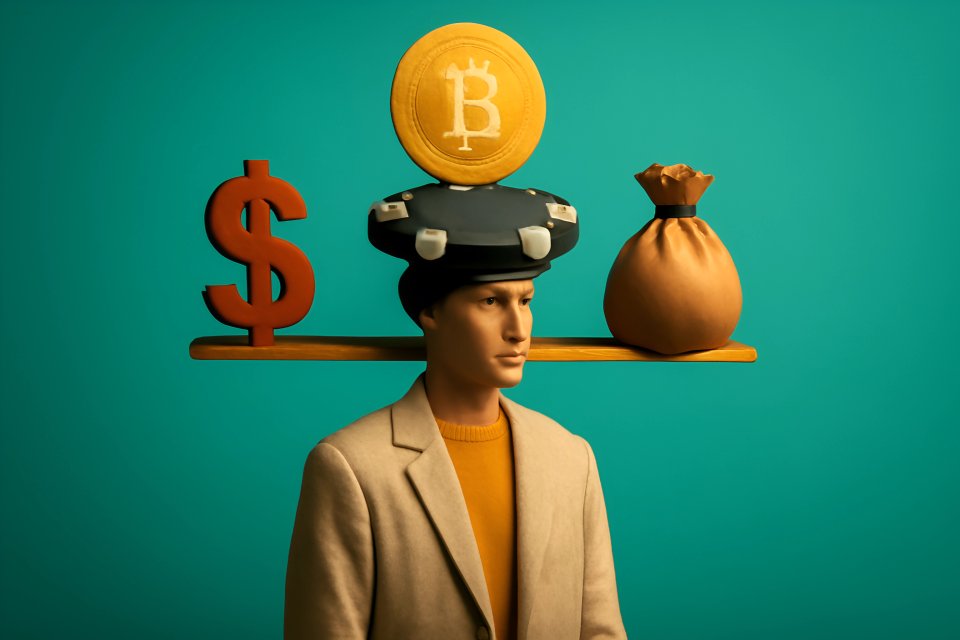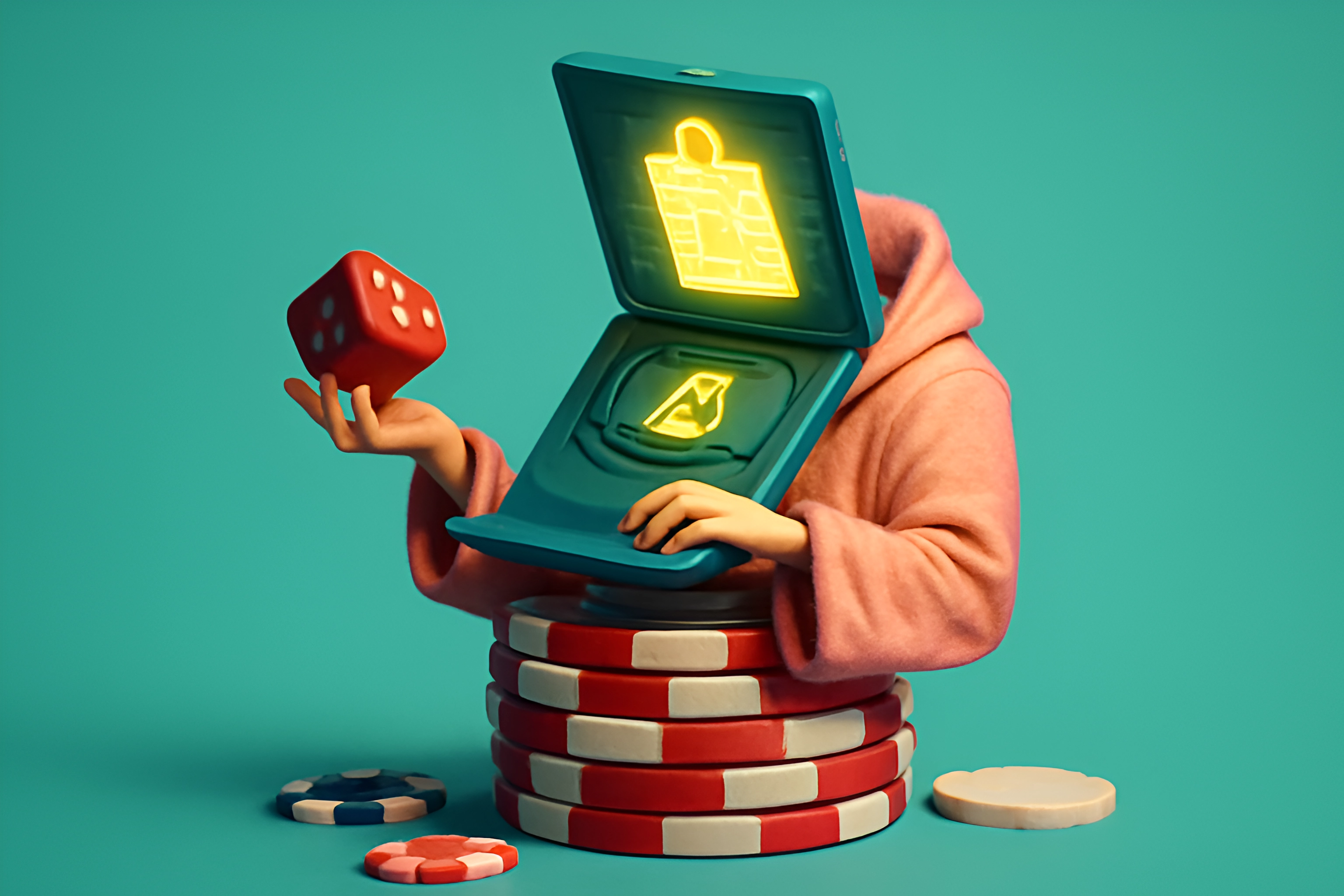
The online casino world glitters with promise, a dazzling spectacle of lights, sounds, and the tantalizing chance of a big win. But admit it, hasn't a shadow of doubt ever crept into your mind? That nagging question after a near miss or an unexpected loss: Can you truly trust that the game is fair? For years, this uncertainty was the unwelcome guest at every virtual table. Provably fair systems emerged as a beacon of hope, a crucial first step towards transparency, allowing players a glimpse behind the curtain.
But what if that beacon could blaze with an undeniable, irrefutable light? While provably fair technology was a game-changer, offering a method to verify outcomes, many implementations still required a leap of faith. Certain aspects still relied on the casino's internal processes or perfect, unwavering integrity. Is "good enough" truly acceptable when your hard-earned crypto, your precious time, and your pursuit of secure entertainment are on the line? We believe you deserve more. The opportunity isn't just to improve trust, but to make it absolute.
Prepare for a revolution in how you perceive online gaming. Smart contracts are not merely an incremental upgrade; they represent a fundamental paradigm shift. By embedding the very essence of game logic—the rules, the random number generation, the payout conditions—directly onto an immutable blockchain, they forge an unparalleled level of transparency, automation, and verifiably fair play. This isn't just about seeing the results; it's about knowing, with mathematical certainty, that the game is, and always will be, on the level. This is the dawn of an era where you can finally breathe easy, shed your skepticism, and immerse yourself fully in the thrill of the game, backed by the unshakeable security of code.
This article will pull back the curtain on this groundbreaking fusion of technologies. We'll start by refreshing your understanding of what provably fair gaming entails and demystifying the power of blockchain smart contracts. Then, we'll dive deep into the incredible synergy created when these two forces combine, exploring how smart contracts provably fair casino gaming elevates fairness to an entirely new dimension. We'll unpack the technical integration, reveal the tangible benefits that directly impact your gaming experience, confront the challenges and considerations head-on, and finally, cast our gaze towards the exciting future this technology is already shaping. Get ready to discover the next evolution of trust in online gaming.
Understanding the Core Concepts
What is Provably Fair Gaming? A Quick Refresher
Ever felt that sinking feeling, that whisper of suspicion after a game doesn't go your way? Provably fair gaming was conceived to silence that doubt, to bring a measure of mathematical certainty to the unpredictable world of chance. At its heart, this system employs cryptographic wizardry, typically using a combination of a client seed (an input you provide or is generated by your browser), a server seed (an input from the casino, usually hashed and revealed later), a cryptographic hash (a unique digital fingerprint of data), and often a nonce (a number used only once) to ensure that game outcomes are predetermined and cannot be manipulated mid-game by either party. This detailed foundation on provably fair gaming offers more insight into these mechanisms.
Think of it as having a sealed envelope containing the game's result, which is only opened after all bets are placed. After a game round, you, the player, can use these cryptographic elements to independently verify that the outcome was indeed generated fairly and randomly, just as the casino promised. As Provably.com explains, this methodology empowers players to "verify each bet and confirm they have not been cheated," fostering a crucial layer of trust. This ability to check the math yourself is a powerful antidote to the fear of rigged games.
This system rapidly became a cornerstone for building player confidence, particularly within the burgeoning crypto casino scene, assuring players that the house wasn't stacking the deck behind the scenes. However, even this innovative approach had its limitations. The integrity of some provably fair systems still hinged on the casino correctly implementing the protocol and managing off-chain elements honestly. As Vegas Aces points out, in many setups, "the casino still controls the server seed generation and initial hashing," leaving a small but significant element of trust in the operator's hands.
Demystifying Smart Contracts: Automated Trust on the Blockchain
Now, imagine a system where trust isn't just encouraged but enforced by unbreakable code. Enter smart contracts. Picture them as incorruptible digital arbiters, self-executing agreements where the terms of the deal—the rules of a casino game, the conditions for a payout, the mechanics of a bonus—are meticulously written into lines of computer code. This code doesn't just sit on a company server; it resides and operates on a blockchain, a decentralized, distributed, and immutable ledger.
What imbues these digital guardians with such transformative power? Their core characteristics are key: they are immutable, meaning once deployed on the blockchain, their foundational rules cannot be secretly altered by anyone, not even the casino that commissioned them. They are inherently transparent, as the underlying code can often be inspected by anyone, allowing for public verification of fairness. They are automated, executing their programmed functions like processing bets and issuing payouts automatically when predefined conditions are met, without needing human intervention. And crucially, they are decentralized, running across a network of computers rather than relying on a single point of control or failure, on robust platforms like Ethereum or Polygon.
Beyond the realm of simple cryptocurrency transactions, blockchain smart contracts are revolutionizing countless industries by enabling complex, automated, and trustless interactions. As ChainPlay.gg highlights, "smart contracts automate the execution of agreements so that all participants can be immediately certain of the outcome, without any intermediary’s involvement or time loss." This is the very bedrock of automated trust, moving beyond promises to provable execution, a concept that explores crypto's advantages in gaming more broadly.
The Synergy: How Smart Contracts Elevate Provably Fair Gaming
Automating the Provably Fair Process with Code
This is where the true alchemy occurs, where your innate desire for absolute security and fairness meets the cutting edge of technological innovation. Imagine the entire operational logic of a casino game—the intricate shuffle of a virtual deck of cards, the precise spin of a slot machine's reels, the definitive roll of digital dice—not just verified by a provably fair algorithm after the fact, but executed and governed by an unalterable smart contract. The rules of engagement are no longer just promises outlined in terms and conditions; they become unbreakable, self-enforcing lines of code.
Consider Random Number Generation (RNG), the very heart of any game of chance that claims to be fair. With smart contracts, RNG mechanisms can be implemented directly on-chain or verifiably linked to on-chain events, effectively eliminating any lingering suspicion about the integrity or predictability of the random outcomes. SDL Corp explains that blockchain can provide "a transparent and verifiable way to generate random numbers," which is fundamental to player trust. And what about payouts, the moment every player eagerly anticipates? They transform into automated, guaranteed events, triggered instantaneously by the smart contract itself based on those predefined, publicly auditable rules.
No more agonizing waits for withdrawal approvals, no more unsettling doubts about whether a substantial win will be honored. The smart contract acts as an impartial digital judge and an instant, incorruptible paymaster, all seamlessly integrated into one elegant system. This profound level of automation ensures that the provably fair process isn't merely a verification step conducted post-game, but an integral, active, and continuously enforced component of the gameplay itself, from the moment you place your bet to the second your winnings hit your wallet.
Unprecedented Transparency and Verifiability
Do you crave the power to see exactly how the games you play operate under the hood? With smart contracts, this desire for transparency becomes a reality. The code that dictates the game's logic, its payout percentages, and its fairness mechanisms is frequently open-source, permanently recorded and available for public scrutiny directly on the blockchain. This means that tech-savvy players, independent security researchers, or third-party auditing firms can dive into the code and meticulously confirm that the game operates precisely as advertised, leaving no room for hidden manipulations.
Every single wager placed, every game outcome generated, every payout processed is not just an entry in a casino's private, centralized database; it becomes a verifiable transaction indelibly etched onto a public, immutable ledger. This is the foundation of truly transparent crypto casinos, where the entire lifecycle of a bet, from initiation to settlement, is open for inspection by anyone, at any time. As Ethereum.org's documentation on verifying smart contracts suggests, source code verification "increases transparency, as users can read and audit the source code," which is a cornerstone of this new trust paradigm.
This isn't merely about observing the final results; it's about gaining a profound understanding of the entire process. It’s about possessing the unshakeable knowledge that the rules you agreed to when you started playing are the exact rules being enforced, consistently and without exception, for every single round of play. This unparalleled level of verifiability forges an almost unbreakable bond of trust and confidence between the player and the gaming platform, fostering a sense of security that traditional online casinos struggle to match.
Enhanced Security and Immutability
Do you harbor fears of shadowy hackers compromising game integrity or, even worse, a rogue operator unscrupulously altering odds or withholding winnings? Smart contracts offer a formidable shield against such threats, leveraging the inherent security of blockchain technology. Once a smart contract containing the core game logic and financial rules is deployed onto the blockchain, its fundamental operational parameters become effectively set in stone – they are immutable. Neither the casino operator who deployed it nor any malicious external actor can tamper with or secretly modify these core rules.
This characteristic drastically reduces counterparty risk – the pervasive danger in traditional systems that the other party in a transaction (in this gambling context, the casino) might not fulfill its obligations. The smart contract, bound by its meticulously programmed code, must execute its functions as written, without bias or deviation. BCIC.org emphasizes that "once a smart contract is deployed on the blockchain, its terms cannot be altered," which is the bedrock of ensuring persistent game integrity and fairness over time.
Your funds, your bets, and the fundamental fairness of the game are no longer solely reliant on the casino's promises or the strength of their conventional cybersecurity measures. Instead, they are protected by the distributed, cryptographic security features inherent in the blockchain itself, a foundational technology that underpins the security of this new gaming era. This represents a profound and empowering shift away from traditional online gaming systems where security often depends on centralized databases and human oversight, both of which can be vulnerable points of failure or manipulation.
Technical Integration: A Deeper Dive into Smart Contracts Provably Fair Casino Gaming
On-Chain vs. Off-Chain Computation for Game Logic
The ultimate dream for transparency advocates is to have every single aspect of a casino game run directly on the blockchain, making all logic and data flow completely public and verifiable. However, the current reality of blockchain technology often necessitates pragmatic compromises. Running entire complex game logic on-chain—meaning every calculation and state change is a blockchain transaction—can be prohibitively expensive due to gas fees (transaction costs) and potentially slow, especially during periods of high network congestion on popular blockchains like Ethereum. Imagine every intricate animation frame of a modern video slot game needing to be processed as a separate blockchain transaction – the cost and latency would make it utterly impractical for a smooth player experience.
This practical constraint has led to the development and adoption of hybrid models. In these systems, the most critical elements ensuring fairness and financial security—such as the escrow of player funds, the commitment phase of Random Number Generation (where the casino might lock in its seed hash), and the final result verification and automated payout execution—are managed securely by the smart contract on-chain. However, less critical or more computationally intensive parts of the game, like detailed graphical rendering, complex physics simulations in some game types, or intermediate game state calculations, might occur off-chain (on traditional servers or player-side) and then be cryptographically linked, verified, or settled on-chain. Sequence.xyz discusses this crucial balance, noting that "off-chain solutions can handle complex computations quickly, with the results later anchored to the blockchain for verification," ensuring efficiency without sacrificing core integrity.
Technologies such as oracles (trusted external data feeds that bring real-world information onto the blockchain) and state channels (private, off-chain ledgers between specific parties for rapid, low-cost transactions that are later settled on the main chain) are instrumental in bridging this on-chain/off-chain gap. They allow for faster, cheaper off-chain interactions while still leveraging the formidable security and verifiability of the main blockchain for the most crucial steps. The art lies in designing these hybrid systems so that even with some off-chain components, the core principles of fairness, fund security, and outcome verifiability remain irrevocably anchored to the immutable smart contract.
Example Workflow of a Smart Contract-Powered Casino Game (e.g., Dice or Simple Slot)
Let's illuminate this technical integration by walking through a simplified workflow of a dice game powered by smart contracts provably fair casino gaming principles, demonstrating how these components interact to deliver a secure and transparent experience.
- You Initiate Your Bet: As the player, you kick off the game by sending a transaction to the casino game's dedicated
smart contract. This transaction typically includes your bet amount and your chosen parameters (e.g., you're betting the dice will roll under a specific number, say 50). Your cryptocurrency wager is now securely held in escrow by the smart contract itself, not by the casino's operational accounts. - The Contract Springs into Action: The smart contract receives your input and acknowledges your bet. It might already have a pre-committed (hashed) server seed stored from a previous transaction, or it might utilize an on-chain
RNGmechanism. For instance, a common on-chain RNG technique involves using theblockhash(a unique identifier) of a future blockchain block, combined with your input and potentially other unpredictable on-chain data, to generate a random number, as explored in some Speedrun Ethereum challenges focused on dice games. - The Outcome is Irrevocably Sealed: The secure
RNGmechanism, whether operating entirely within the smart contract or verifiably linked to it through cryptographic commitments, generates the outcome – the result of the dice roll. This outcome is determined algorithmically based on the agreed-upon inputs and logic. - The Rules are Impartially Checked: The
smart contractthen automatically compares this generated outcome to the parameters of your bet, based on its embedded, unchangeable rules. Did your chosen number come up? Did you win or lose according to the predefined game logic? - Instant Justice (or Swift Commiseration): If your bet was successful, the smart contract automatically executes the payout, transferring the winnings directly from the escrowed funds to your designated crypto wallet. If you lost, your bet amount is retained by the contract according to the game rules. Crucially, all aspects of this process—the bet, the inputs, the outcome, and the fund transfer—are recorded as new, verifiable transactions on the
blockchain.
This entire flow, from your initial click to the final settlement, is designed to be automated, transparent, and verifiable by anyone with access to a blockchain explorer. There's no human intervention required for processing payouts, no opaque back-end systems hiding the logic, and the rules of the game are open for inspection, ensuring a level playing field.
Key Blockchain Platforms Enabling This Technology
The successful deployment and operation of these sophisticated smart contracts provably fair casino gaming applications depend heavily on the capabilities of the underlying blockchain platform. Not all blockchains are created equal when it comes to handling the demands of interactive, real-time gaming. Platforms that are renowned for their robust smart contract functionalities, scalability, and security are naturally leading the charge in this innovative space. Ethereum, the undisputed pioneer of smart contract technology, remains a major player due to its vast developer ecosystem and battle-tested security, though its historically high gas fees can sometimes be a concern for high-volume, low-stake games.
This economic reality has spurred the rapid growth and adoption of Layer 2 scaling solutions built atop Ethereum, as well as alternative Layer 1 blockchains designed for higher throughput and lower costs. Polygon (formerly Matic Network) has emerged as a very popular choice for gaming dApps, offering significantly lower fees and faster transaction confirmation times while still benefiting from Ethereum's overarching security through mechanisms like plasma chains and periodic checkpoints. RocknBlock.io details Polygon's advantages, highlighting its "scalability and low transaction fees" as key enablers for developers. Similarly, BNB Chain (formerly Binance Smart Chain) provides a high-speed, low-cost environment that has attracted a large number of gaming and DeFi applications.
Other contenders like Solana are also making significant inroads, known for their incredibly high transaction throughput (TPS) and extremely low latency, characteristics that are highly attractive for games requiring rapid interactions and a seamless user experience. The choice of which blockchain platform to build upon often involves a careful consideration of trade-offs between decentralization, security guarantees, transaction speed, operational cost (gas fees), and the maturity of the developer tooling. All these factors are critical for delivering a smooth, trustworthy, and economically viable tech in casino gaming experience that players will embrace.
The Tangible Benefits for Players and the Industry
For Players: The Ultimate Assurance of Fairness
Imagine stepping into an online casino environment where every shred of doubt, every lingering suspicion about game integrity, simply evaporates. That's the profound peace of mind that smart contracts integrated with provably fair systems deliver directly to you, the player. You gain an absolute, unshakeable confidence in the fairness of each game because the rules are not hidden within a corporate black box but are transparently encoded and permanently locked within the blockchain code, beyond the reach of any unilateral alteration.
You are no longer required to blindly trust the casino operator's claims of fairness; you are empowered to verify outcomes yourself through cryptographic methods or, even more powerfully, to rely on the inherent immutability and transparency of the underlying blockchain technology. As SDL Corp compellingly states, "Blockchain technology offers a transparent and immutable ledger, ensuring that game outcomes are fair and cannot be tampered with." This fundamental shift translates directly into a more relaxing, enjoyable, and ultimately more secure gaming experience, allowing you to focus on the thrill of the game rather than the integrity of the platform.
And the cherry on top of this trust-infused cake? Payouts. They are often significantly faster, fully automated, and refreshingly free from the frustrating delays and disputes that can unfortunately plague interactions with some traditional online casinos. When the smart contract determines you've won, based on its verifiable logic, you get paid – typically instantly and without the need for manual approvals or arguments. This direct, automated settlement is a massive win for player satisfaction and security.
For Casino Operators: Building Unshakeable Credibility
In today's increasingly skeptical world, where consumers are hungry for authenticity and verifiable claims, casino operators who courageously embrace and implement smart contract technology gain an enormous and sustainable competitive advantage. By doing so, they attract a more discerning, intelligent, and often more loyal player base – individuals like you, who inherently value transparency, understand the power of tech in casino gaming, and actively seek out platforms that respect their intelligence and their funds. This isn't just about implementing a new feature; it's about fundamentally building an unshakeable reputation for integrity and trustworthiness.
Consider the significant operational efficiencies that flow from this technological adoption. By automating the core processes of fairness verification and payout execution, operators can dramatically reduce the overhead associated with customer service inquiries related to fairness claims, result disputes, and withdrawal processing times. This not only saves costs but also frees up valuable human resources to focus on higher-value activities such as game innovation, enhancing the overall player experience, and community engagement. GlobalNewImpact.com notes that smart contracts can "streamline operations, reduce administrative overhead, and minimize the potential for human error or fraud."
Adopting smart contracts for core gaming logic and financial transactions unequivocally positions a casino at the bleeding edge of the industry, sending a powerful signal to the market that they are deeply serious about player trust, security, and forward-thinking innovation. It’s a potent statement of values that resonates strongly with the core principles of the crypto community and sets a new standard for what players should expect. This commitment to verifiable fairness can become a key differentiator in a crowded market.
For the Crypto Casino Ecosystem: Fostering Innovation and Trust
The impact of integrating smart contracts into provably fair gaming extends far beyond the benefits to individual players and specific casino operators; it acts as a powerful tide that lifts all boats within the broader crypto casino world and even the wider blockchain adoption landscape. The widespread and successful adoption of smart contracts in the engaging and accessible context of online gaming serves to drive broader acceptance, understanding, and appreciation of blockchain technology itself. It showcases a compelling, tangible, and easily understood real-world use case that extends beyond the often more abstract realms of finance or supply chain management.
This technological advancement effectively sets a new, significantly higher standard for fairness, transparency, and accountability across the entire online gaming industry. Casinos that choose to ignore this evolution and stick to opaque, traditional systems may find themselves increasingly questioned and ultimately abandoned by a growing cohort of players who have experienced the superior trust and verifiability offered by transparent crypto casinos. This player-driven demand for higher standards can catalyze positive change across the board.
This, in turn, fosters a vibrant and virtuous cycle of innovation. As more platforms successfully integrate smart contracts and demonstrate their benefits, developers are further incentivized and technologically enabled to create even more sophisticated, engaging, and secure on-chain or hybrid gaming experiences. This ongoing innovation not only enhances player choice and satisfaction but also further solidifies the legitimacy, appeal, and long-term viability of the entire crypto casino ecosystem, pushing it further into the mainstream. This aligns with a broader perspective on evolving crypto casino technologies.
Challenges and Considerations
Smart Contract Vulnerabilities: The Risk of Bugs in Code
While the immutability of smart contracts is a cornerstone of their security benefits, it also means that if a contract is deployed with flaws in its code, those flaws are permanently embedded and can be exceptionally difficult to rectify. Smart contracts, despite their sophisticated nature, are written by human developers, and humans can make mistakes. Bugs, logical errors, or overlooked vulnerabilities in the code can potentially be exploited by malicious actors to drain funds, manipulate game outcomes, or disrupt service, as starkly highlighted by resources like the OWASP Smart Contract Top 10 for 2025, which identifies critical risks such as reentrancy attacks, oracle manipulation, and insecure randomness.
This inherent risk underscores the absolute, non-negotiable necessity of rigorous and comprehensive security audits before any smart contract that handles player funds or governs critical game logic is deployed to a live environment. Reputable crypto casinos and game developers invest significantly in engaging multiple third-party security firms, specialists in blockchain auditing, to meticulously scrutinize their code for any potential weaknesses. As also pointed out by UZCERT regarding OWASP vulnerabilities, these vulnerabilities can lead to severe financial losses and reputational damage if not proactively addressed.
Even with multiple layers of audits and adherence to best coding practices, the risk of an undiscovered vulnerability can never be entirely eliminated in such a complex and rapidly evolving technological landscape. This emphasizes the ongoing need for developer vigilance, continuous monitoring, robust incident response plans, and active community scrutiny in the world of decentralized applications to mitigate these inherent risks.
Scalability and Transaction Costs (Gas Fees): Impact on Game Speed and Player Cost
The very decentralization and robust security mechanisms that make blockchain technology so appealing for trustless applications can also introduce significant challenges in terms of scalability and transaction costs, commonly known as gas fees. On popular public blockchains like Ethereum, periods of high network demand can lead to congestion, which in turn results in slower transaction confirmation times and substantially increased gas fees required to incentivize miners or validators to process transactions.
Imagine a scenario where every single dice roll, every card dealt in a poker game, or every spin of a slot machine incurs a variable, and sometimes unpleasantly substantial, transaction fee. This can quickly make games, especially those involving frequent small bets or rapid interactions, unappealingly expensive for players and can significantly detract from the fast-paced, seamless experience that many casino enthusiasts seek. OSL.com provides a clear explanation that gas fees "compensate miners for the computational energy required to process and validate transactions," making them an unavoidable aspect of using many public blockchains.
While the ongoing development and increasing adoption of Layer 2 scaling solutions (like Polygon, Arbitrum, and Optimism) and the emergence of newer, inherently more scalable Layer 1 blockchains are actively working to address these critical issues, finding the optimal balance between decentralization, security, speed, and cost remains a key ongoing challenge for developers building smart contracts provably fair casino gaming platforms. The goal is to make the on-chain experience as smooth and affordable as traditional online gaming, without compromising the core benefits of blockchain.
Complexity of Development and User Experience: Making it Seamless for Non-Technical Players
Building secure, efficient, and engaging casino games powered by smart contracts is a significantly complex undertaking. It requires a specialized skillset in blockchain development, smart contract programming languages like Solidity, and a deep understanding of cryptographic principles and decentralized system architecture – skills that are still relatively scarce and in high demand. This complexity can lead to longer development cycles, higher initial investment costs for casino operators looking to innovate in this space, and a smaller pool of available talent.
Furthermore, from the player's perspective, the user experience (UX) for interacting with decentralized applications (dApps), including crypto casinos, can sometimes be clunky, intimidating, or confusing, especially for individuals who are not already familiar with concepts like crypto wallets, managing private keys, understanding gas fees, and using blockchain explorers to verify transactions. The average online casino player desires a seamless, intuitive, and frictionless experience; they are looking for entertainment, not a crash course in applied cryptography or decentralized infrastructure management. The core transparency offered by crypto must be user-friendly.
Bridging this usability gap is absolutely crucial for the mainstream adoption of smart contract-based gaming. Casinos and dApp developers need to invest heavily in user interface (UI) and user experience (UX) design, abstracting away as much of the underlying blockchain complexity as possible. The goal is to provide an interface that feels familiar, engaging, and easy to navigate, even if the powerful and revolutionary tech in casino gaming is working diligently behind the scenes to ensure fairness and security.
Regulatory Uncertainty: The Evolving Landscape for Decentralized Gaming Applications
The innovative and rapidly evolving world of cryptocurrency, blockchain technology, and decentralized applications still operates in a somewhat nascent and often ambiguous regulatory environment across many jurisdictions globally. Governments, financial authorities, and gaming regulators are, in many cases, still struggling to understand, categorize, and effectively regulate these new technological paradigms. This creates a persistent degree of uncertainty for both the operators of decentralized gaming platforms and the players who choose to use them.
Complex questions abound: Are decentralized casinos that operate primarily via autonomous smart contracts considered "gambling operators" in the traditional legal sense? If so, which jurisdiction's laws and licensing requirements apply, especially when the platform and its users may be globally distributed? How are player winnings generated from these platforms to be treated for tax purposes? These are challenging questions without universally clear or easy answers. Coinsniper.net touches upon this intricate situation, referring to the "complex web of international laws and the nascent nature of blockchain regulation" that projects in this space must navigate.
This evolving and sometimes unpredictable regulatory landscape can act as a deterrent for some mainstream adoption, institutional investment, and the willingness of larger, established gaming companies to fully embrace decentralized technologies. There is a clear and growing need for greater regulatory clarity and the development of sensible, innovation-friendly guidelines that can foster responsible development and protect consumers without stifling the transformative potential of smart contracts provably fair casino gaming.
The Future is Now: Trends and Predictions
The momentum behind smart contract integration in online gaming is not just palpable; it's rapidly accelerating. We are witnessing a steady and undeniable increase in adoption, not only by new, crypto-native casinos built from the ground up with decentralization in mind but also by some forward-thinking, established online gaming operators who recognize the profound shift in player expectations. Players are increasingly vocal in their demand for greater transparency and verifiable fairness, and smart contracts stand as the most robust and technologically sound method to deliver on these demands. This trend is unequivocally set to continue and intensify as the underlying technology matures, becomes more developer-friendly, and its benefits become more widely understood by the gaming public.
We are also moving decisively beyond the initial wave of relatively simple on-chain games like dice and lotteries. Prepare to see an explosion of more sophisticated and complex casino games—think intricately designed video slots with elaborate bonus features, peer-to-peer poker rooms where the house has no access to funds, and even innovative elements of live dealer games—being built either entirely on-chain or with significant, verifiably fair smart contract integration for critical game logic and financial settlements. The ingenuity of developers in leveraging the unique capabilities of blockchain smart contracts to create novel, engaging, and provably fair gaming mechanics is only just beginning to be unleashed, promising a richer and more diverse gaming landscape.
The persistent pain points of transaction costs (gas fees) and network speed, which have historically been barriers to more widespread adoption of on-chain gaming, are being actively and effectively addressed. The continued development, refinement, and broader adoption of Layer 2 scaling solutions—such as Optimism, Arbitrum, zk-Rollups, and Polygon's diverse suite of offerings—are crucial in this regard. Concurrently, the emergence of even more efficient, purpose-built next-generation Layer 1 blockchains designed for high throughput and low latency will further alleviate these concerns. These vital infrastructural advancements will make on-chain and hybrid gaming significantly faster, dramatically cheaper, and therefore more practical and appealing for a much wider range of game types and a broader global player base.
Perhaps one of the most exciting and transformative frontiers in this space is the burgeoning rise of Decentralized Autonomous Organizations (DAOs) in the governance and even ownership of casino platforms. Imagine a gaming platform where the players themselves, typically as holders of the platform's governance token, collectively make key decisions about game offerings, fee structures, the allocation of development resources, and even how platform profits are distributed or reinvested. All these governance processes can be managed transparently and enforced through smart contract-based voting mechanisms. UltimateCapper.com astutely notes that DAOs "represent a shift towards community-driven platforms where players have a real stake and say in the operation and evolution of the casino." This is arguably the ultimate expression of decentralized, player-centric gaming, placing power and control directly into the hands of the community.
Conclusion: Embracing a New Era of Verifiable Gaming
We've journeyed together through the very core of a technological and philosophical revolution in online gaming. We've witnessed firsthand how the potent and synergistic combination of smart contracts and provably fair principles is not just subtly tweaking the edges of the online casino experience but is fundamentally rewriting the age-old rules of trust, transparency, and player empowerment. This isn't some distant, futuristic dream; it's a tangible, rapidly unfolding reality that is reshaping the landscape of transparent crypto casinos before our very eyes. The power to independently verify game outcomes, the profound assurance of immutable rules, and the seamless automation of fairness are no longer mere aspirational buzzwords but are becoming the foundational, non-negotiable pillars of the next generation of online gaming.
At Crypto Casino Sharks, our unwavering mission has always been to expertly guide you, our valued reader, through the often complex and ever-evolving waters of crypto gaming. We are committed to championing platforms and technologies that prioritize your security, demand absolute transparency, and embody an intelligent, informed approach to online play. The remarkable rise and increasing sophistication of smart contracts provably fair casino gaming align perfectly and powerfully with this core ethos. This technology empowers you, the player, with an unprecedented level of control, insight, and confidence in the fairness of your gaming experience. We firmly believe that this technological evolution is a critical and irreversible step towards a future where every single bet placed in an online environment is verifiably fair, without exception.
The future of gaming is rapidly becoming one where you no longer have to simply take a casino's word for it; you can see the proof for yourself, etched onto the immutable blockchain. We wholeheartedly encourage you to actively seek out, diligently explore, and enthusiastically support those pioneering casinos and game developers who are courageously implementing this transformative technology. Your engagement, your choices, and your voice fuel the demand for even greater transparency, innovation, and player-centric design across the entire global online gaming industry. By choosing platforms that embrace verifiable fairness, you are helping to build a better, more trustworthy gaming world for everyone.
What are your thoughts on the pivotal role of smart contracts in ensuring truly fair casino gaming? Have you had the exhilarating chance to play on a platform that is already leveraging this incredible, trust-enhancing technology? Don't keep your valuable experiences and insights to yourself – we invite you to share your perspectives, stories, and questions in the comments section below! Or, if you're feeling inspired and ready to dive into this new era of verifiable gaming, we encourage you to explore our reviews to discover casinos that are leading the charge in smart contract integration and experience the future of trusted online gaming today.
